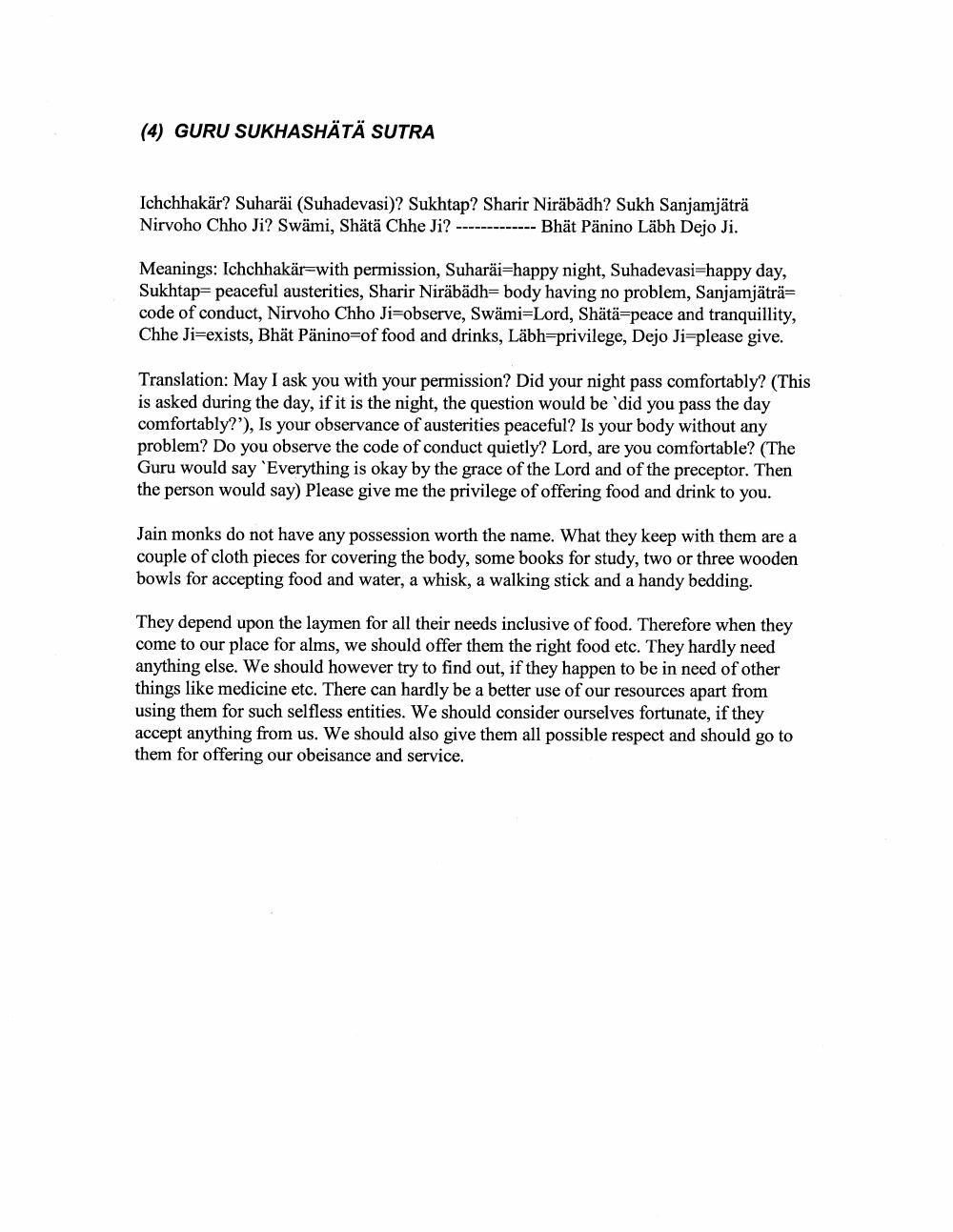________________
(4) GURU SUKHASHÄTÄ SUTRA
Ichchhakär? Suharäi (Suhadevasi)? Sukhtap? Sharir Niräbädh? Sukh Sanjamjäträ Nirvoho Chho Ji? Swami, Shätä Chhe Ji? ------------- Bhät Pänino Läbh Dejo Ji.
Meanings: Ichchhakär-with permission, Suharäi=happy night, Suhadevasi=happy day, Sukhtap= peaceful austerities, Sharir Niräbädh=body having no problem, Sanjamjäträ= code of conduct, Nirvoho Chho Ji=observe, Swämi=Lord, Shätä=peace and tranquillity, Chhe Ji-exists, Bhät Pänino=of food and drinks, Läbh=privilege, Dejo Ji-please give.
Translation: May I ask you with your permission? Did your night pass comfortably? (This is asked during the day, if it is the night, the question would be did you pass the day comfortably?'), Is your observance of austerities peaceful? Is your body without any problem? Do you observe the code of conduct quietly? Lord, are you comfortable? (The Guru would say 'Everything is okay by the grace of the Lord and of the preceptor. Then the person would say) Please give me the privilege of offering food and drink to you.
Jain monks do not have any possession worth the name. What they keep with them are a couple of cloth pieces for covering the body, some books for study, two or three wooden bowls for accepting food and water, a whisk, a walking stick and a handy bedding.
They depend upon the laymen for all their needs inclusive of food. Therefore when they come to our place for alms, we should offer them the right food etc. They hardly need anything else. We should however try to find out, if they happen to be in need of other things like medicine etc. There can hardly be a better use of our resources apart from using them for such selfless entities. We should consider ourselves fortunate, if they accept anything from us. We should also give them all possible respect and should go to them for offering our obeisance and service.




